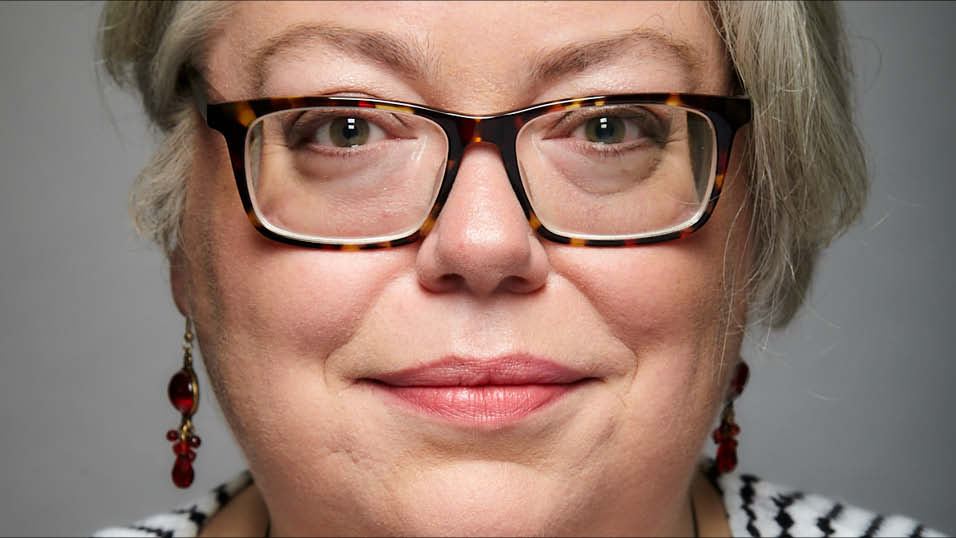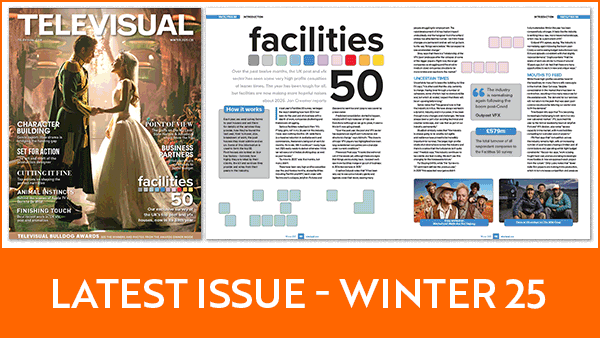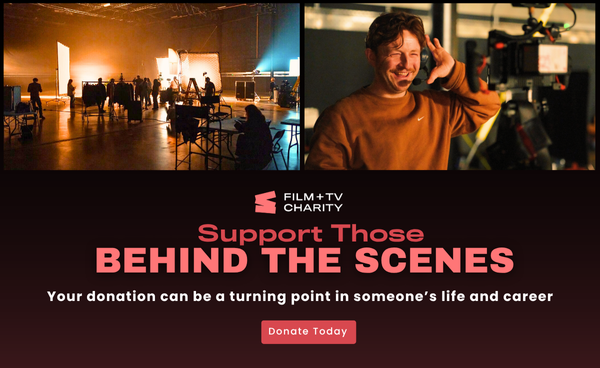Ahead of this year’s WFTV Kay Mellor Screenwriters’ Lab, screenwriter Lisa Holdsworth (Fat Friends, Waterloo Road, Call the Midwife) talks about the importance of fostering talent through schemes that offer writers the chance to work with industry professionals, develop scripts and get invaluable feedback and guidance from experienced writers.
Getting involved in the Women in Film and TV Screenwriters’ Lab in memory of Kay Mellor was a full circle moment for me. Kay was my mentor at the start of my writing career and gave me my first script commission on her hit show Fat Friends. She kickstarted a 25-year (and counting) career that has allowed me to write on some of the UK’s best-loved shows and create my own series for Channel 4.
Indeed, I learned of Kay’s passing whilst I was preparing for the first day in the writers’ room for Dreamers. And so, running the courses which kick-off the Screenwriters’ Lab each year has been an honour and a way of paying forward Kay’s kindness. And I am very much looking forward to meeting this year’s cohort of ambitious and talented female writers.
The weeklong course takes place at The Hurst. The rambling house is the former home of playwright John Osborne before it was gifted to the wonderful Arvon Foundation who are our hosts for the week. In the splendid isolation of the Shropshire countryside, the 13 writers will take part in sessions on series structure, character development and pitching techniques. They’ll get one-on-one tutorials where they can discuss their ideas in detail.
And for five days they’ll have full access to two experienced industry professionals along with a guest speaker on the Wednesday. This year, we are joined by agent Christina Pickworth, who will be sharing tips and advice for navigating the industry. It is an intense week! Myself and co-course leader, Marilyn Milgrom, will answer hundreds of questions from breakfast time until bedtime.
Ironically, as the former chair of the Writers Guild of Great Britain, I have a healthy cynicism for the many schemes and competitions which offer writers career opportunities, often in lieu of actual career development and commissions, however I wouldn’t be involved with the Kay Mellor Screenwriters’ Lab if it weren’t providing real value for the participants. And I am confident that it does. Schemes such as the WFTV Screenwriters’ Lab are a model for combatting issues with industry schemes we continually see for new writers.
A significant part of the WGGB’s casework is dealing with schemes that have over-promised and under-delivered. The organisers usually set out with good intentions but often underestimate the response they will receive from eager writers. Many become swamped with entries requiring more reading time than anticipated. Sometimes entrants are left waiting months to find out if they have been successful. Often feedback is promised but doesn’t materialise. And for those lucky enough to make it onto the scheme they often find the organisers cannot deliver the opportunities what they have promised. Entrants can find themselves saddled with onerous travel expenses and deadlines which do not take into consideration their day jobs or caring responsibilities.
In some isolated cases, the organisers demand that the entrants sign over the rights to the work they submit for little remuneration, if any. The WGGB advice is always read the small print and never relinquish the rights to your intellectual property unless you are being paid industry rates. We also provide guidelines for writers entering writing competitions arming them with the knowledge they need to protect themselves and their work.
It is vital that schemes, particularly those run to encourage and find writers from marginalised communities, offer genuine opportunities for career development not just positive PR for the companies running them.
At the end of the WFTV Kay Mellor Screenwriters’ Lab, participants will leave with notebooks and heads full of knowledge and ideas. They’ll also leave with a peer group which will provide support as they work towards pitching their TV series ideas at a WFTV showcase next year. The showcase provides a terrific opportunity for the writers to network with even more industry professionals.
And judging by the continually active WhatsApp groups set up by the previous cohorts, that peer-to-peer support is one of the most valuable assets of the scheme provides. Writing can be an isolating experience. It’s important to find fellow travellers to be your sounding board and shoulder to cry on. You need people who will celebrate your successes and understand your setbacks.
It has been a pleasure to stay connected with the women who have graduated from the Screenwriters’ Lab. In a challenging time for new writers, they have forged ahead with the careers. Some have moved into drama production jobs. Many have projects in development with production companies and broadcasters. And some are putting together funding for short and feature film projects. And that is thanks to the knowledge and confidence they’ve gained from their time with WFTV.
Jon Creamer
Share this story














